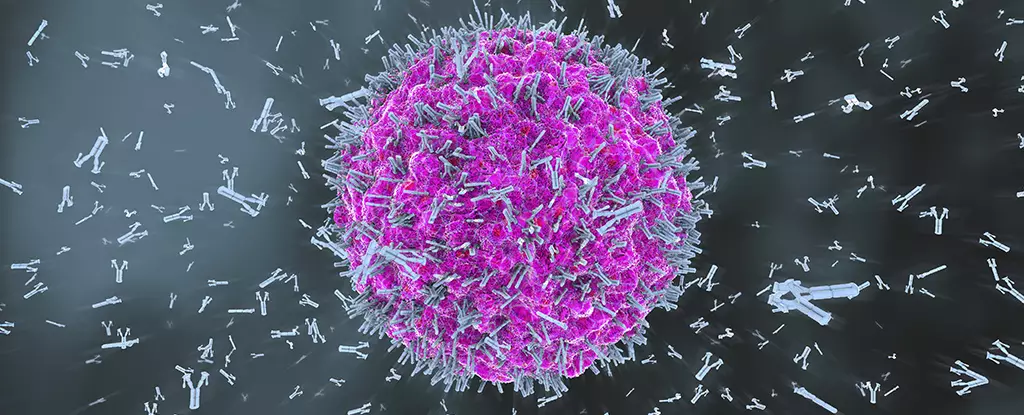Our immune system plays a crucial role in protecting our bodies from invading pathogens. It is able to distinguish between our own cells and foreign entities, triggering an immune response when necessary. However, when the immune system malfunctions, it can result in conditions where our body becomes a battleground for internal conflicts.
A recent study conducted by researchers from the Swiss Federal Institute of Technology Lausanne has identified a key enzyme called cyclic GMP-AMP synthase (cGAS) that plays a critical role in detecting infiltrating viruses. This enzyme binds to foreign DNA in the cytoplasm of cells and alerts the body to the presence of an invader. It is essential for cGAS to be tightly regulated, especially once it enters the nucleus of a cell.
The study reveals the identification of a biological switch that marks cGAS for deletion in situations where no immune response is needed. This switch, in the form of a protein complex named CRL5-SPSB3, adds ubiquitin to cGAS, marking it as disposable. This mechanism effectively eliminates cGAS when it is not required, preventing the enzyme from attacking healthy cells.
Implications for Autoimmune Disorders
The research has significant implications for autoimmune disorders, such as type 1 diabetes and inflammatory bowel disease, which occur when the immune system fails to function properly. By understanding how cGAS is regulated, there is potential to develop targeted therapies to ensure the immune system is always in check.
The findings of this study shed light on the importance of protein degradation in regulating cGAS in the nucleus. This discovery provides structural insights that could be leveraged for therapeutic purposes. By manipulating the regulation of cGAS, it may be possible to modulate the immune response effectively.
The discovery of the regulatory mechanism for cGAS represents a significant advancement in our understanding of the immune system. By identifying how cGAS is controlled and targeted for disposal when not needed, researchers have opened up new avenues for exploring treatments for autoimmune disorders. This research highlights the intricate balance required for a well-functioning immune system and underscores the potential for therapeutic interventions based on these findings.



Leave a Reply